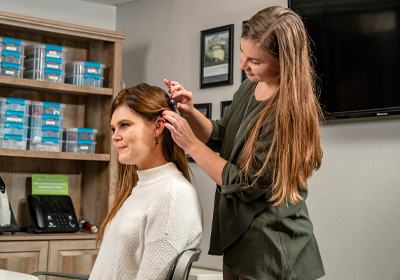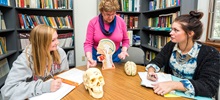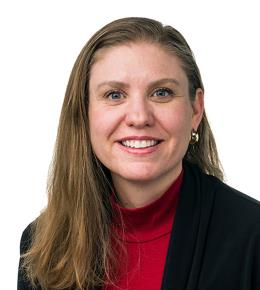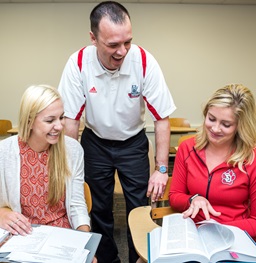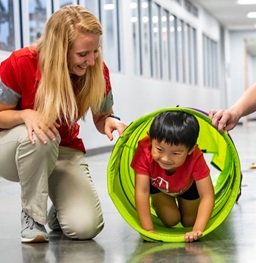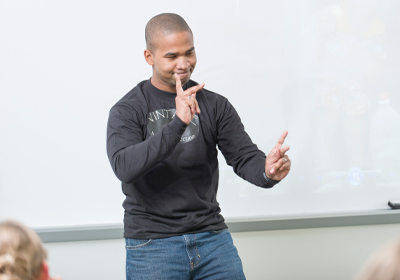
Alum success story
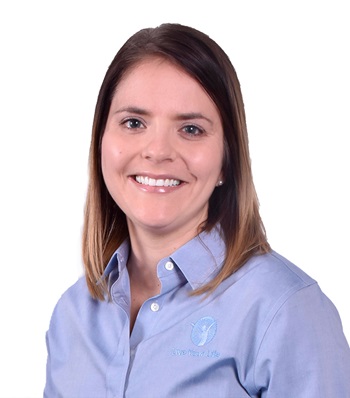
Quickly after starting my freshman year at USD, I knew that I wanted to major in communication sciences & disorders. After declaring my major as an undergraduate, I was warmly welcomed into the program. Because of the intimate class sizes, professors in the program were easily accessible and approachable. With such a positive undergraduate experience, I chose to attend USD to receive my master’s degree. The clinical experiences I had while in the program helped ready me for my current career as a speech-language pathologist working with the geriatric population.
Rachel Wieneke



